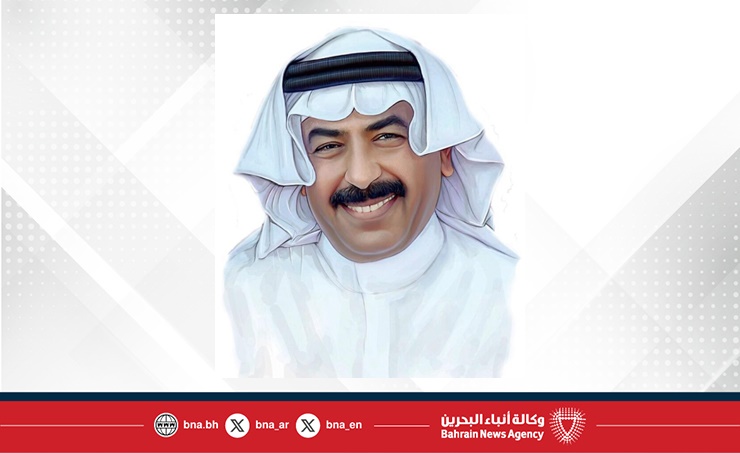Ali Abdullah Khalifa’s poetry celebrated at L’Harmattan’s

Paris, Oct. 21 (BNA): The renowned French publishing house L’Harmattan recently hosted an event in Paris, bringing together a group of researchers who presented studies on the poetry of Ali Abdullah Khalifa.
The event aimed to highlight the poet’s work, which captures the struggles of contemporary Arabs, and to acknowledge his significant contributions to enriching modern Arabic poetry, both in classical and colloquial forms. His efforts have greatly enhanced Bahraini poetry with profound human experiences.
Speakers at the event noted that Khalifa has published several poetry collections through Arab and international publishers, with some translated into French, English, Portuguese, and other languages. These works address a variety of thematic concerns, contributing to genre-specific writing and exploring multiple critical issues.
The event featured three academic sessions with researchers from various countries, each focusing on a different aspect of Khalifa’s creative output. French researcher Nicole Barrière, a poet, translator, and head of publishing department at L’Harmattan, analysed several of Khalifa’s poems translated into French, expressing her admiration for the poet’s ability to craft his ideas in solid poetic forms that enhance their beauty.
Lamjed Ben Romadhan offered a detailed rhetorical analysis of several poems, while researcher Theo Bradonas from the Institut National des Langues et Civilisations Orientales (INALCO), provided a reading of Khalifa’s collection Trees Are Not Alike.
Additionally, Professor Souad Hamdash from the Catholic Institute of Paris (Institut Catholique de Paris, ICP) presented a significant study titled “The Semiotics of Pain: Metaphorical Interrelations in The Moans of the Masts”.
Novelist and researcher Amani Belhaj conducted a critical reading of “The Moans of the Masts”, while Professor Abdelkrim Ben Belkacem from ICP focused on the calligraphic elements in the poetic collection “The afflicted has said”. Researcher Haj Dahman shed light on Khalifa’s critical contributions and his dedication to preserving popular culture.
The event also highlighted the poet’s multifaceted cultural personality, as noted by Professor Tayeb Ould Laroussi, the former director of the Arab World Institute (Institut du Monde Arabe) in Paris, who praised Khalifa’s literary genius and unique writing style.
The researchers underscored the importance of such academic sessions in promoting Bahraini poetry, particularly the works of Khalifa, and emphasised the role of L’Harmattan in bridging the gap between Arab poets and non-Arab readers, further expanding the global reach of Bahraini poetry.
H.F, N.N, M.B

